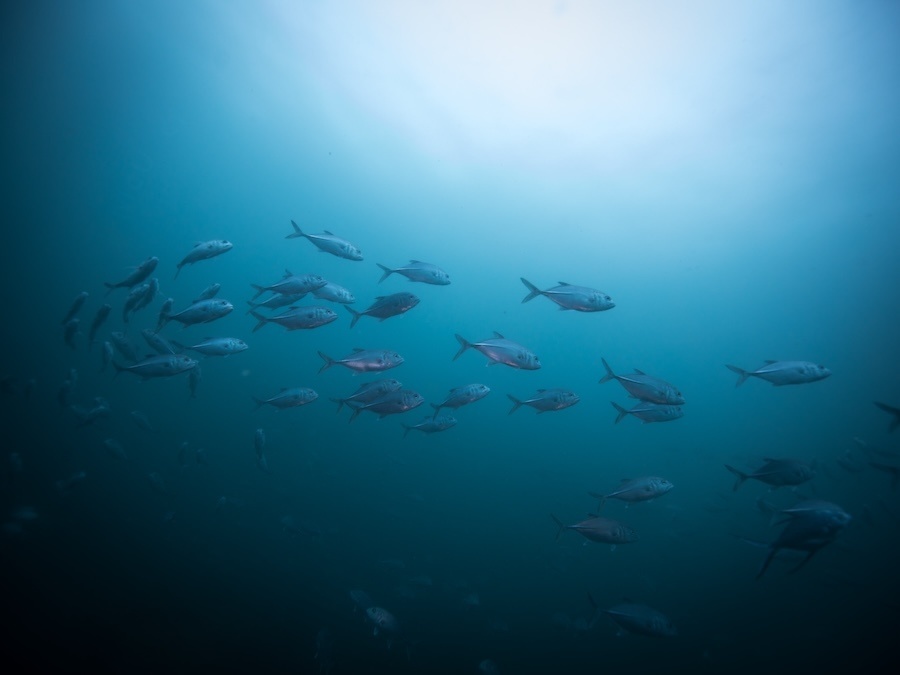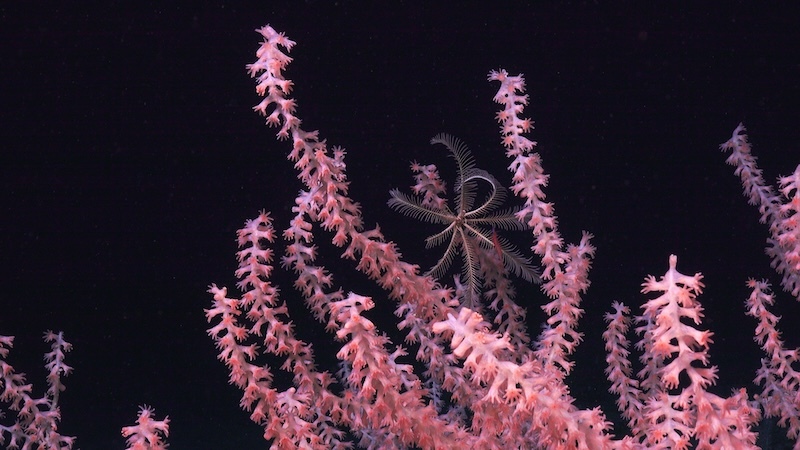
Key EU fisheries stakeholders call for a deep-sea mining moratorium as Norway prepares first licensing round
The Environmental Justice Foundation (EJF) and the Deep Sea Conservation Coalition (DSCC) welcome the position of the Long Distance Advisory Council (LDAC), along with 3 other fishing advisory councils, the North Western Waters, the Pelagic Species and the South Western Waters Advisory Councils, has reiterated its support for a moratorium on deep-sea mining.
In response to the European Commission’s Draghi report recommendation on exploring deep-sea mining, the LDAC has rejected Draghi’s suggestion due to the lack of understanding of the long-term impacts of deep-sea mining on marine ecosystems, including fisheries. In a statement addressed to EU decision-makers, the LDAC reiterated its "significant concerns about both the environmental and socio-economic risks associated with deep-sea mining" and recalled that the precautionary principle urges them to stay firmly opposed to any premature steps towards deep-sea mining. This comes at a time when Norway, the only European country to open its extended continental shelf on the high seas to prospective deep-sea mining, plans to award exploitation licences as early as the first half of 2025, against the advice of the government’s environmental agency, the Norwegian fishing industry, scientists, NGOs and the European Commission and Parliament. In addition, a Canadian company has stated that it intends to submit an application to the International Seabed Authority within the next few months to obtain a deep-sea mining licence in the international waters of the North Pacific Ocean.
Studies point to huge risks, including life-smothering sediment plumes, noise pollution and the release of contaminants into the marine environment, which could have disruptive effects on commercial fish species. The health of fisheries is central to the food security and economic stability of coastal communities, making any potential impact on marine biodiversity a matter of widespread public concern, according to LDAC.
“Our ocean is worth more protected than plundered. LDAC's strong stance is a powerful signal that Norway and nations around the world should listen to. The science couldn't be clearer: a stop to deep-sea mining is essential to avoid irreversible damage to precious ecosystems that communities have nurtured for centuries,” said Steve Trent, EJF CEO and Founder. “The real opportunities are in the circular economy, new battery technologies, and recycling of critical materials. Nature is under enough pressure as it is; another decision to destroy our planet’s last wild space is the last thing we need.”
Matt Gianni, Co-founder and Political Analyst for the Deep Sea Conservation Coalition noted: “Fishers and fishing industry organisations worldwide are increasingly recognizing the threat that deep-sea mining on the high seas poses to both fisheries and the marine environment. As pro-mining companies and countries attempt to fast-track the development of this industry, it’s crucial for fishers to make it clear: that the risks posed by deep-sea mining to fisheries are real and this industry must not be given the green light by the International Seabed Authority.”
ENDS
Notes to editors
The Long Distance Fleet Advisory Council (LDAC) is an EU fisheries advisory body representing stakeholders from both the fishing sector (including catching, processing and marketing sectors, and trade unions), and other groups of interest (environmental NGOs, consumers and civil society). It is currently composed of more than 50 members from 12 EU Member States. Its mission is to provide advice to the European Institutions (Commission, Council and Parliament) and EU Member States on matters related to fisheries on the high seas and Fisheries Agreements with non-EU Countries, as well as on business relations and the international market for fish products.
LDAC’s statement and the Draghi report
In line with the EU Commission and the European Parliament, LDAC supports pausing deep-sea mining initiatives until critical knowledge gaps are addressed. As countries, financial institutions, and major corporations increasingly voice opposition to deep-sea mining, fisheries organisations, including the Norwegian Fishing Vessel Owners Association (Fiskebåt) and The Norwegian Fishermen Association, have also criticised plans to open areas for deep-sea mining as have fishery groups in Africa as well as in Asia and the Pacific, such as the LMMA Network and CAOPA. These organisations have highlighted the risk to the marine sector, particularly fisheries, and have called for a moratorium on deep-sea mining until a better understanding of the long-term consequences is established.
In September, a coalition of 16 NGOs warned the European Commission President Ursula von der Leyen about references in the Draghi report in favour of deep-sea mining. A representative responded on her behalf by reaffirming its commitment to protect the ocean by upholding its commitment to advocate for prohibiting deep-sea mining. LDAC’s moratorium position is aligned with a growing number of stakeholders that oppose deep-sea mining. Recent statements from over 800 marine scientists and organisations affirm that our understanding of deep-sea ecosystems remains limited, and ongoing knowledge gaps prevent a fully informed assessment of deep-sea mining’s ecological and socio-economic impacts.
Deep-sea mining in Norway
In Norway, deep-sea mining is emerging as a contentious issue between political parties. While the government plans to award licences as early as spring 2025, Norway's own government agencies have been highly critical, stating that the government’s Strategic Impact Assessment does not meet national or international legal requirements and that risks of radioactive waste and particles have not been properly assessed. In addition, National Indigenous communities are also raising their voices against deep-sea mining.
About EJF
EJF works internationally to inform policy and drive systemic, durable reforms to protect our environment and defend human rights. We investigate and expose abuses and support environmental defenders, Indigenous peoples, communities, and independent journalists on the frontlines of environmental injustice. Our campaigns aim to secure peaceful, equitable, and sustainable futures.
Our investigators, researchers, filmmakers, and campaigners work with grassroots partners and environmental defenders across the globe. Our work to secure environmental justice aims to protect our global climate, ocean, forests, wetlands, wildlife and defend the fundamental human right to a secure natural environment, recognising that all other rights are contingent on this. For more information or to speak to one of our expert analysts, please contact media@ejfoundation.org
SIGN UP FOR OUR EMAILS AND STAY UP TO DATE WITH EJF

